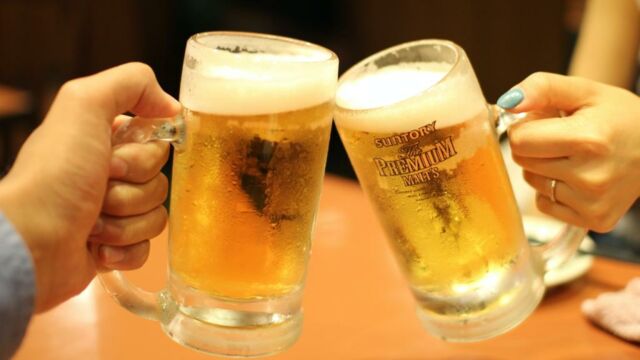It is one of the most consumed beverages in the world, and yet, it does not necessarily have a good reputation. Like all alcoholic beverages, it is responsible for many diseases, such as cancer, every year. But the latest work of a Dutch scientist could change this.
Discover our latest podcast
While the health benefits of drinking a glass of red wine a day are already well-known, the same may also apply to beer, but not for the same reasons. Here's what we know.
Why should you drink a beer a day?
While some of the researchers' findings are puzzling, this study should make us happy. Professor Eric Claassen, who works at the University of Amsterdam, presented the results of his research at an event organised by the brand Yakult. He explains why some beers are good for your health.
According to him, strong beers such as Hoegaarden, Echt Kriekenbier, and Westmalle Tripel are rich in probiotics, micro-organisms that are good for the body. He even assures that 'you are getting a stronger beer that is very, very healthy' and drinking 'just one of these beers every day it would be very good for you'.
In short, if you have a choice, it's better to have a glass of stronger beer, but consume less!
A Strong Beer a Day Keeps the Doctor Away" May Be the New Health Kick
— IT Man 👤 (@Ocajunior_) December 20, 2022
Drinking one strong beer a day could be as healthy for your gut as drinking a probiotic.
https://t.co/bZkifRnmjg
Read more ⋙ Drinking alcohol can have this surprising benefit, study shows
What makes strong beer healthier?
While most beers are only fermented once, strong beers are fermented twice. It is this process that brings out the good bacteria that Claassen talks about. Well aware of the dangers of too much beer consumption, the Dutch professor wishes to remind us that 'in high concentrations alcohol is bad for the gut'. To benefit from its potential effects on the microbiota, it is not necessary to increase its consumption, which can lead to alcoholism.
These probiotics are also found in yoghurts or fermented foods, but also and especially in food supplements. Of course, not everything in beer is good for your health, but consuming it in moderation does not seem to be so bad. Claassen said:
We don’t want to give people a licence to drink more beer. Those of us who advocate good health know it’s very difficult for people to stop at one.
Read more:
⋙ This is what happens to your body when you binge-drink
⋙ Cancer risk: Brits' favourite drink increases risk of getting cancer
What are the risks of drinking too much beer?
On the terrace in the summer, during an aperitif with friends, or while watching a sporting event, there is always a good reason to enjoy a good draught or bottled beer. However, as for all drinks, whatever the degree of alcohol, their consumption is not without risk.
Beyond being particularly caloric (beer doesn't come from nowhere), its alcoholic nature can have particularly harmful effects on the body in the short and long term.
After regular and intensive consumption, ethanol, which results from the fermentation of fruits or cereals, can favour the development of numerous pathologies such as :
- Cancers (mouth, throat, oesophagus, liver, colon, rectum, breast)
- Cardiovascular and digestive diseases (cirrhosis)
- Diseases of the nervous system and mental disorders
- Fatigue
- High blood pressure
- Sleep disorders
- Memory or concentration problems etc.
We can never remind you enough, but alcohol consumption, beer or not, must be in moderation, because it remains dangerous for your health in many ways. The NHS recommends to drink no more than 14 units of alcohol a week, spread across 3 days or more. That's around 6 medium (175ml) glasses of wine, or 6 pints of 4% beer.
This article has been translated from Gentside FR.
Sources used:
Independent: 'Scientists praise stronger beers as ‘very, very healthy’ thanks to gut-friendly bacteria
NHS: 'Drink less'















